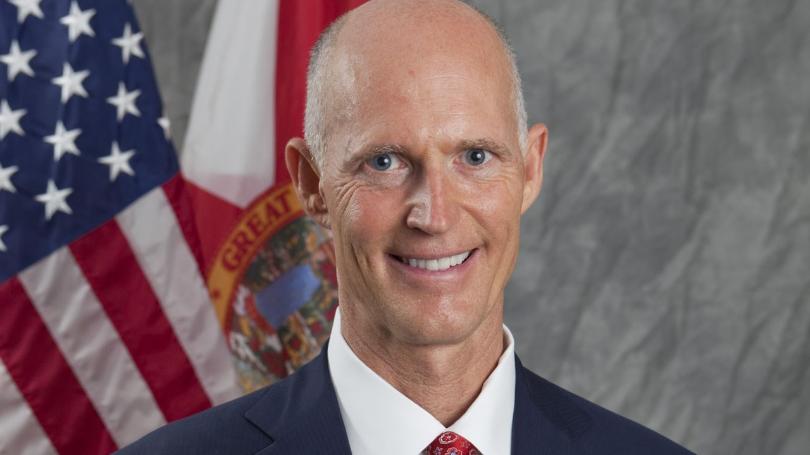In the 2018 Senate election, Floridians will have to choose between current governor Rick Scott (R-Fla.) and incumbent U.S. Sen. Bill Nelson (D-Fla.). If you live in Florida and are going to the polls, keep in mind that our current governor, according to Kevin Curtis, executive director of the NRDC Action Fund,
“…has regularly put the wishes of corporate polluters above the needs of Florida’s environment and families. He’s sided with a fringe movement of climate change deniers, defunded popular and bipartisan conservation programs, and undermined the enforcement of air, water, and climate protections. If you value Florida’s natural resources, a strong economy, and a safe future for our children, casting a vote to put Rick Scott in the Senate makes zero sense.”1
https://www.youtube.com/watch?v=bIwuT_Nm9Ug
While Curtis may be backing the other candidate, that does not negate Scott’s abysmal environmental record. Thanks to the NRDC for putting the following list together:2
Weakened and cut funding for environmental and health safeguards
- Scott zeroed-out funding for Florida Forever, the state’s hallmark conservation program. Established under former Gov. Jeb Bush in 2001, the program had an original budget of $300 million, which was funded through real estate taxes. It was reauthorized in 2008, but in 2011 Scott proposed cutting funding entirely for the program. In 2016 the program was defunded.
- Politifactgave a “pants on fire” rating to Scott’s June 2015 statement that “If you care about the environment, we’ve got record funding.” Scott cut the budget for Florida’s Department of Environmental Protection (DEP). In 2012, 58 DEP employees were laid off. DEP enforcement cases dropped from 2,289 in 2010 to 799 in 2012.Revenue collected from environmental penalties in Scott’s first term fell from $9.3 million in 2011 to $1.4 million in 2013.
RELATED STORY:
Dismantled state laws aimed at fighting climate change and preventing pollution
- In 2016, Scott signed into law weaker standards for toxic chemicals that flow into Florida’s rivers, lakes, and coastal waters. Concerned citizens and environmental groups fought the move, citing concerns about cancer-causing chemicals in drinking water and seafood.
- In 2016, Scott signed into law HB 7007,a bill that prohibits local governments from imposing bans on Styrofoam and polystyrene products.
- After Scott took office in 2011, he attended a private retreat hosted by climate-denying megadonors David and Charles Koch. He then oversaw the dismantling of HB 7135, a wide-ranging environmental protection bill which put Florida “among the forefront of state-level climate actions at the time.” “The laws were ‘revised piecemeal over several years, one subtle change at a time, until the intent of the bill is gutted,’ said one former state official.”
RELATED STORY:
- As Toxic Algae Chokes Fla Waters Into State of Emergency, Petition Urges Chain to Drop Big Sugar
- Time to end sugar subsidies and political payoffs
Promoted climate change denial
- Florida state employees have come forward with stories of climate change “censorship” in Florida government under Scott. Scott often dodged questions about his own views on climate change, often using the phrase, “I’m not a scientist.”
Maintained close ties to polluting industries
- Scott owned a stake in Spectra Energy, the company chosen by Florida Power and Light in July 2013 to build and operate a controversial $3 billion pipeline to facilitate development of new gas-fired powerplants. He worked to speed up permitting for the project.
- Scott ignored the role of the sugar industry in causing a massive algal bloom in St. Lucie estuary. Scott blamed the federal government for inadequate water infrastructure, though a year earlier, his administration rejected moving forward with plans to buy thousands of acres of sugar farm land to build reservoirs that could store the nutrient-rich water that causes algal blooms.












